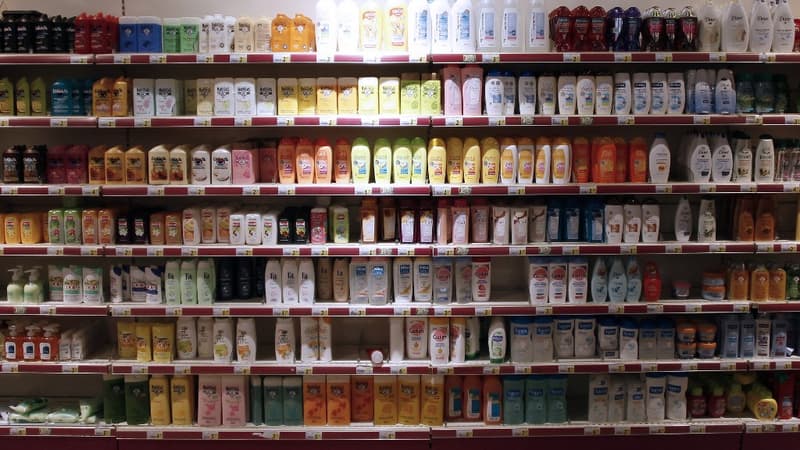Hygiene, a luxury? According to a survey conducted by IFOP and presented by the Donons Solidarity Association on Monday, April 7, 8 million French must arbitrate between the purchase of food or hygiene products, or 17% of the population. A figure that rises to 39% in the most precarious.
“Since 2019”, the hygiene and precariousness barometer “highlights the alarming progression of hygienic precariousness, which is established at a critical level,” he says The Solidarity Donations Association In a press release.
47% of the more than 4,000 people interviewed in November 2024 also indicate that the economic context encouraged them to limit their consumption of hygiene products. These restrictions are related to 71% of people in poverty, a “record level” according to solidarity donations.
Children under 35 have difficulties: more than 6 out of 10 young people (62%) say they restrict their consumption of hygiene products due to financial difficulties and 25% say they had to choose between buying food or hygiene products.
8% Give the purchase of shower gel
In the front line, cosmetic products such as makeup or hair coloring products. Then they come moisturizers, razors or deodorants to which 12% of people surrender. When 9% renounces laundry or shampoo due to lack of money, 8% of shower, soap or toothpaste frosts and 7% toilet paper.
22% of the French, or 11 million, limit their consumption of toilet paper. 15% accumulate their shampoos to save and 10% washing without using a shower gel.
“We do it with the media by hand, we use shampoo to wash the body or shower gel vice versa for the head […] And rarely wash clothes, I put clothes to ventilate to prevent smells, “says Françoise, 63, unemployed, with donations of solidarity.
23% of parents of young children and 44% of single -father families should give up purchase diapers due to lack of means. This forces them to “space exchanges or find improvised solutions, with direct consequences in the hygiene and well -being of babies,” says solidarity.
Women find another important problem: menstrual precariousness. 16% of women interviewed, according to regularly, periodic protections and 13% have already had to use improvised protection, such as fabric or toilet paper. A situation that has repercussions on its social or professional life: one in ten French has already stopped leaving home or has lost its job due to the lack of hygienic protections.
Hygienic precarious, “source of discomfort and isolation”
In more general terms, the feeling of discomfort, stress and concern is noticeable in a large part of people related to hygienic precariousness. Half of the people in question declare a negative impact on their self -esteem. Therefore, 31% of these respondents say they avoid leaving and 23% flee from social interactions. 28% feel uncomfortable at work, 15% renounce work and 14% of a job interview.
“Hygienic precariousness is not limited to daily discomfort: a vicious circle begins. Source of discomfort and isolation, feeds social exclusion and strengthens precariousness,” insists the association.
Houria Taleb, the National Secretary of Secours Populaire, tells BFMTV that people who cross the doors of the association do not always dare to ask for hygiene products. “They have the impression that it is a luxury, which does not enter an emergency (…) or abuse solidarity when asking that,” he said “figures that have increased from year to year from the Covid crisis.
“We often contribute precariousness to the need to eat, but hygiene is part of the well -being,” says Houria Taleb.
The survey was conducted by the IFOP Institute with a sample of 4003 respondents, representative of the French population over 18. The representativeness of the sample was guaranteed by the quota method (sex, age, profession of the questioned person) after the stratification by region and category of agglomeration. The interviews were conducted online from November 14 to 20, 2024.
Source: BFM TV


